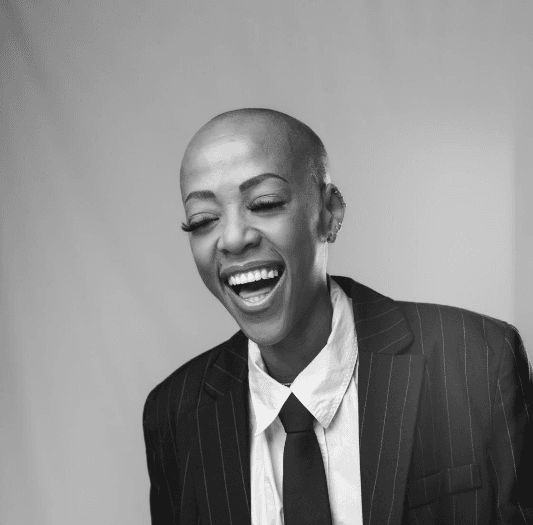33 year-old Andres Perez is the co-founder and Director of the Fintech Association of South Africa (Finasa), a non-profit organisation based in Cape Town. Finasa was born out of the need to regulate the fintech industry, create more opportunities for collaboration and a sharing of information. Andres and his co-founder recognized a gap in the market while he was consulting for one of the leading fintechs in the Mother City and together, they wanted to address a number of issues that the industry then didn’t answer.
Born to a Colombian father and Brazilian mother, Andres grew up in Mexico, Brazil, Colombia and Guatemala. His father was a diplomat so they moved around a lot. He speaks Spanish, Portuguese, Italian and English. He studied Business Management and Military Sciences and graduated first of his class from The Naval Officers Academy in Colombia.
Andres moved to South Africa about ten years ago, spent five years in Johannesburg (his lips get dry in Joburg…something about this air we breathe this side) before moving to Cape Town. He enrolled at the University of Cape Town, and graduated with a degree in Emerging Markets in 2021.
He is a disruptor, a change agent and intentional about his work as well as the contribution he wants to make in his industry. He has been in the fintech industry for four years, before then he was in traditional finance for about seven years. We chat to him some more on his journey.
How would you describe Fintech today and how’s the industry performing in SA?
The industry is perfroming a lot better in South Africa, the investment amount has been diverted to fintech companies in South Africa and Africa is massive, it was up to $4.2 billion last year. South Africa has however fallen a bit behind, we have to take into consideration that a lot of fintechs in South Africa have not really gone for any seed funding or any route but only on bootstrap. From an investment side, we are sort of falling behind but from an innovation side and penetration into the market, we have seen massive growth. There is a lot more development, focus on payments and cryptocurrency. Once a regulator starts paying attention that means you are shaking things up.
Fintech has been known for solving social challenges, especially in unbanked markets. Talk to us about that
South Africa is a particular case. People here under banked. A report by the FSCA estimates that over +-80% of people have a bank account, and only 30% of those people make use of their bank accounts. People don’t seem to trust the banking system, grant recipients go to an ATM for their cash withdrawals. How do we digitize payments because the costs of cash is extensive, and we can do that by building trust with the public and educating users on how they can be included in a financial system.
For an entrepreneur, is it easy to start a Fintech business?
We want to make it easy. We have seen from various cases in Kenya and Nigeria where young entrepreneurs have really great ideas. If there is an idea and regardless of how crazy that idea may be, it could be commercially viable, profitable. For an entrepreneur, there is a lot opportunity within the fintench industry whether it is cryptocurrency, payments, blockchain, AI investment. There is a market to be addressed, there is endless opportunity. For entrepreneur, where there are problems, there is opportunity to address them.
How does one identify the need or the market for your product?
It depends on the vertical you are going into and what problem you are trying to solve. If it’s from payments, are you trying to address the township market, or the unbank market, how do you covert customers from cash to digitized payments? There is opportunities for savings, an opportunity for money remittances as well,, depending on the on the vertical that you’re going towards.

You recently held the Fintech Africa Summit – talk to us about the insights from that gathering.
We can start from a regulatory insight. As we see there has been some sort of disconnect between regulators and industry where the regulators acknowledge now that there is a need to work together towards the harmonization of the industry. So remarks by the Reserve Bank is the developments on their CBDC, the FSCA. Now recently announcing Cryptocurrency as a financial instrument. So all of these are steps forward that we are going towards like, harmonizing the industry. The other thing is the Africanization of fintechs. Some of the products in solving issues from fintechs in America, in Europe, might not be suitable for the African market and this is where a lot of the Fintechs in Africa are taking advantage because we are on the ground. We live in Africa, so we know what works here. So the partnerships of Fintechs from various countries from Nigeria Ghana, Kenya, South Africa coming together to solve one problem which is digitizing Africa and taking Africa to the next level. I think that’s great to see the level of partnerships between countries and obviously the investment side was pretty insightful as well. So for me it was beautiful to see the industry coming together to say, “What are the problems and how are we going to solve the problems rather than blaming others for whatever problems that we have? We came together to say, how can we solve them, and how are we solving those problems?
What do you think needs to happen for the industry to grow in SA?
Definitely regulation. We totally rely a lot on regulation in the lack of clarity sometimes. A lack of regulation is sort of like a roadblock for developers, for entrepreneurs to develop new products. So, again, the harmonization of working with the regulators is imperative and for Cryptocurrencies. We have seen that consumers are not protected and it is important for the regulators. It is important for us as an industry to protect the end consumer. How do we protect the consumer? How do we protect the consumer from fraud? We have seen in a couple of cases for us to move together as an industry, we need to have better policies. Important step is innovation, but again the users as well, there has to be balance between innovation and protecting the user.
What advice would you give to an entrepreneur who is entering this industry?
Ask questions. That’s the best thing you can do. You don’t ask, you don’t get and one thing about the Fintech industry is that everybody is very willing to help the other. There are a lot of resources out there. LinkedIn is a great tool for networking. Start asking questions. They attending summits and conferences. It’s also a great opportunity to meet founders and CEOs and to meet different personalities within the different tech industries from the FinTech Association. We are planning to take Fintech to universities. As we see that, a lot of people have heard the word fintech and you know like “What is this and how can I be a part of it? So we do want to take fintech more to universities, to schools. This is where entrepreneurship is going to come in. This is where the entrepreneurs are being manufactured. So, how do we attract talent? There is a new industry because that new is actually quite an old industry. It’s just that lately it has been quite cool. FintechTech is pretty cool and it’s demanding. I think that you have to put a lot of time and effort into your work.
It is a fast-paced industry but at the same time it is rewarding to you know wake up and have a goal and go to bed and feel like I have achieved something and I have contributed towards something good.
Are you happy with where you are compared to when you started in the industry?
I am happy. Every single day is a challenge but i do feel more of a self-reward and to know that, we are developing materials for people to understand what Fintech is in very simple words. About two weeks ago we issued a report, which is available for everybody for free, to assist people navigate how to fundraising in South Africa, how to get funding from investors. One of the barriers is the access to communication, to resources and some of the time, these resources are very hard to understand, like English is not my first language, so my idea is to translate complex information into very easy information that the every day person can understand. So yeah, it’s very rewarding, we are a nonprofit organization so it’s more about doing good.

And this is this something that you see yourself doing in the next 10 years. Next, 20 years?
Yeah, that’s a very tough question because I’m not really sure what will happen tomorrow but what I envision for the whole industry is to come together to address policies to aid financial inclusion in South Africa. Essentially the banks can’t do it all by themselves, the regulator can’t do it all by themselves.
Fintech does have that benefit of financially including people because you know, we make it accessible. We make products that are native for users. So a lot of the products that are developing in fintech are being developed around what the person’s needs are, rather than what I think it will work. It’s more understanding what is it that people need what it is that people want because banking is not a not a luxury anymore. I think that banking is a necessity.
So what’s next for Finasa?
The next thing is onboarding more users. Then the second thing is the issuing of reports and I am very academic myself and essentially, what this reports does is inform people of where the industry is. Another thing is bringing more talent into the industry. I think that the more we connect with the youth, the more inclusive we are with the youth. We are going to see new startups being created, new ideas, innovation. So I think youth development is one of our big focuses. The creation of working groups to address regulatory changes, at the moment a lot of the fintechs are lobbying by themselves and essentially this is not going to take us anywhere. So for us, we put the whole industry together to shape. We have one common issue or one problem that we are trying to tackle, so how do we come together as an industry? I told the Reserve Bank I want South Africa to be the main tech hub of Africa, officially! So, it’s to position South Africa in that place, where Fintech investors will see South Africa, as the first point of entry, for Africa, as the digital gateway to to the continent and officially claim the number one spot in Africa.
When he isn’t working or traveling, he is surfing, playing polo and now that it’s summer, he will be tanning!
Social media: Linkedin – Fintech Association of South Africa






No Comments